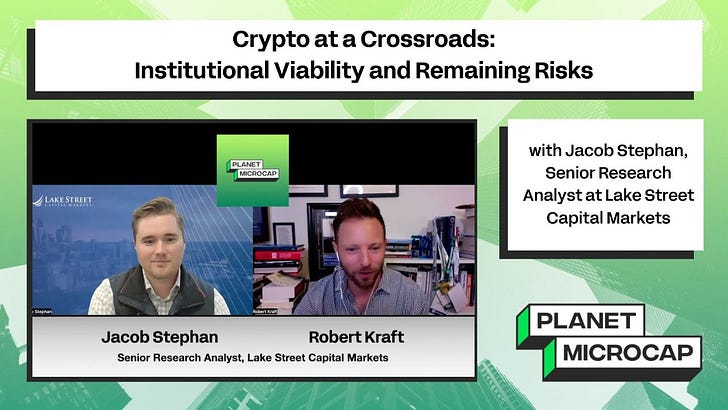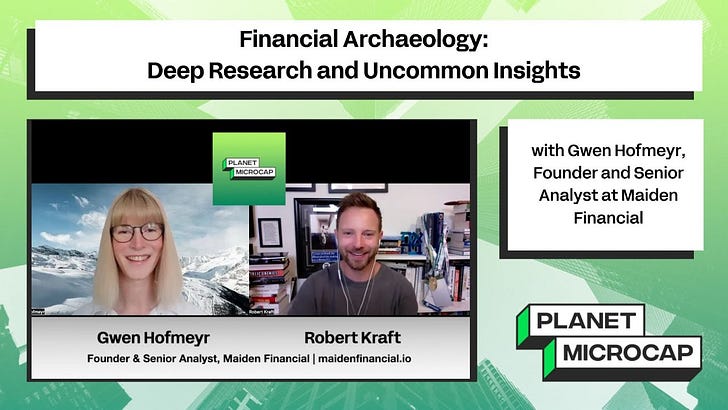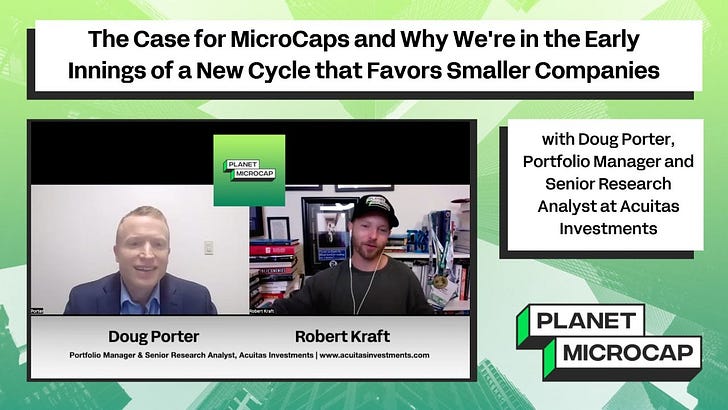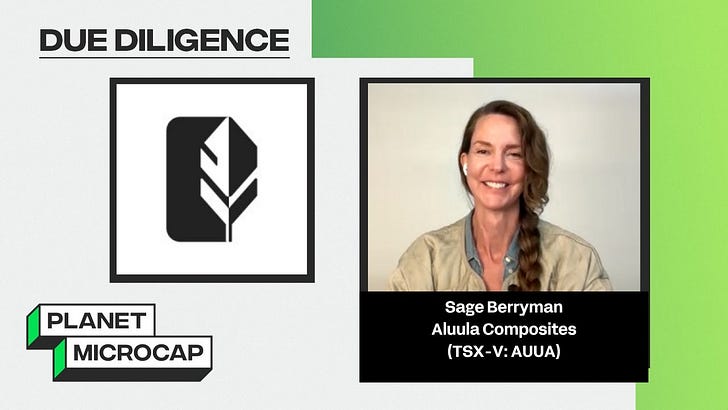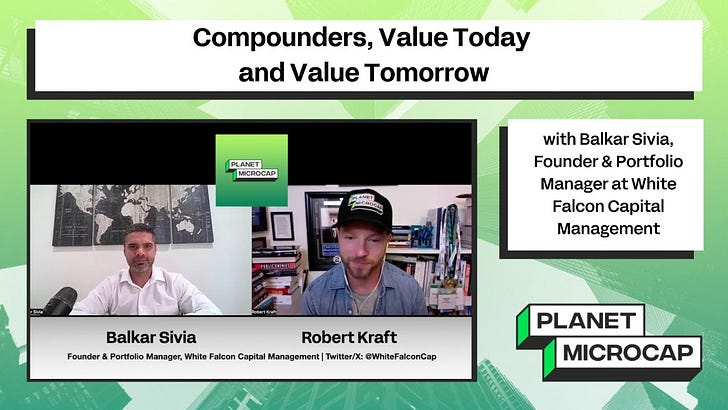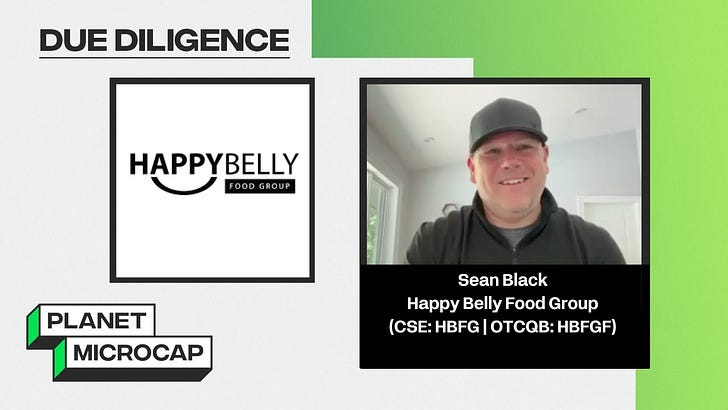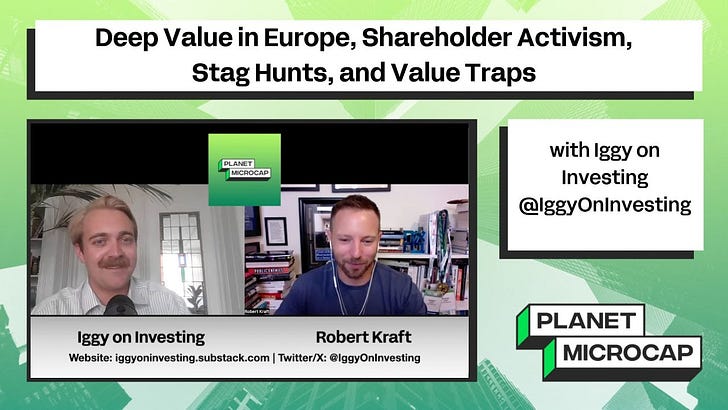My guest on the show today is Ben Finser, Founder and Portfolio Manager at Fin Capital Management. In this episode, Ben shares his journey from a decade at Kabouter Management to launching Fin Capital in 2024, and how his entrepreneurial background shaped his passion for analyzing and owning high-quality businesses.
We dive into his exclusive focus on international micro and small caps, a “target-rich universe” of some 15,000 listed companies in developed markets outside the US. Ben explains why these overlooked businesses — often with no sell-side coverage and tiny trading volumes — present compelling opportunities for investors willing to dig deeper.
Ben also details his boots-on-the-ground due diligence process, including traveling globally to meet management teams, comparing companies to global peers, and navigating cultural nuances when assessing business quality and long-term growth. We talk about his “pseudo-activist” engagement approach, where he works alongside management to improve disclosures, expand investor outreach, and unlock value.
Finally, Ben shares a case study of a Japanese procurement software company he helped bring onto investors’ radar, and offers perspective on why US outperformance may be cyclical — and why international microcaps deserve a place in more portfolios.
For more information about Ben Finser and Fin Capital Management, please visit:
https://fincapitalmanagement.com/
Watch on YouTube:
Summary:
I. Background and Investment Philosophy
Ben Finser’s passion for investing began early through entrepreneurial ventures—a mountain bike cleaning business at age 11, followed by a gardening business and a healthy vending machine venture in high school. These experiences sparked a curiosity about business quality and what differentiates high- from low-quality companies.
His career path included internships and a decade at Kabouter Management, a firm focused exclusively on international micro and small caps. In May 2024, he launched Fin Capital Management.
Finser describes himself as a long-term investor who seeks high-quality businesses to own for years, taking advantage of pricing mismatches created by structural inefficiencies. His concentrated fund emphasizes:
Financial discipline (e.g., net debt/EBITDA <2x)
Self-financing growth
Proven business models with resilience across cycles
II. International Microcap Opportunity: A Target-Rich Universe
Finser invests exclusively outside the U.S. in developed markets. He describes this as a “target-rich universe” of ~15,000 listed companies, compared with a shrinking U.S. listed base.
Key structural drivers of inefficiency:
Abundance of undercovered companies: Many with zero analyst coverage, especially in Japan, which has as many listed companies as the U.S.
Cultural differences in capital markets: In Europe, for example, wealth is often held in cash, bonds, or real estate, reducing equity market sophistication.
Small cap anomaly: As funds grow, they “graduate” out of microcaps, leaving space for smaller managers.
Global comparison advantage: As a global investor, Finser benchmarks local companies against international peers to find mispricings.
He screens for businesses that are too small for larger funds (under $2B market cap or <$1M daily trading volume), focusing on those with decades of operating history and proven durability.
III. Boots-on-the-Ground Due Diligence and Engagement
A. Due Diligence Process
Screening: Quarterly global screens to identify small, resilient businesses.
Travel-driven research: Trips are planned around clusters of interesting companies.
On-site meetings: Focused on understanding recurring revenue, low churn, long-term growth themes, and valuation relative to peers.
Thesis testing: Meetings include direct feedback from management, ideally with key decision-makers.
B. Cultural Nuances
Finser stresses the importance of cultural understanding. Example: In Japan, “yes” often means acknowledgment, not agreement. His European background helps him adapt communication across markets.
C. Advantage as a Foreign Investor
Seen as a positive signal by local companies, who admire U.S. investors.
Local investors often disappointed post-IPO; foreign long-term focus is refreshing.
Easier meeting access—management appreciates the effort of international travel.
Builds networks via local investors and brokers.
D. Active Engagement (“Pseudo-Activism”)
Finser takes a collaborative approach, positioning himself as a shareholder partner to help accelerate re-rating:
Encourage English-language earnings calls and materials
Support international roadshows
Improve investor presentations (e.g., highlight customer stickiness, clarify metrics)
Suggest mid-term targets for clarity
Occasionally advise on M&A or incentive plans when “wallcrossed”
IV. Case Study: Japanese Procurement Software Company
Situation: Sub-$100M market cap, ignored by investors, misunderstood due to gross vs. net revenue reporting.
Actions: Finser helped them clarify disclosures, highlight customer retention (no losses in five years), and develop a mid-term plan. Materials were translated into English.
Result: Discovery by both international and local investors, with re-rating potential.
He emphasizes that such discovery processes can take years, requiring patience and conviction.
V. Macro Outlook and Guidance
A. Macro View
U.S. outperformance since the financial crisis is likely cyclical and overdue to reverse.
International markets remain under-owned by U.S. investors.
Global themes (AI, demographics) create opportunities and risks.
Finser remains a bottom-up investor, focused on resilient businesses rather than macro timing.
B. Advice for U.S. Investors Considering International Microcaps
Overcome home bias—recognize quality companies exist globally.
Focus on proven models with resilience across downturns.
Learn and adapt to cultural differences.
Be patient—discovery and re-rating can take years.
VI. Conclusion
Ben Finser’s strategy blends entrepreneurial passion with disciplined research. He targets overlooked opportunities in developed international markets, where inefficiencies and limited coverage create fertile ground. His approach emphasizes boots-on-the-ground due diligence, cultural adaptability, and collaborative engagement with management teams.
By focusing on quality businesses in underappreciated markets, Fin Capital Management offers an alternative to U.S.-centric portfolios and highlights the long-term potential of global microcap investing.
Planet MicroCap Podcast is on YouTube! All archived episodes and each new episode will be posted on the Planet MicroCap YouTube channel. I’ve provided the link in the description if you’d like to subscribe. You’ll also get the chance to watch all our Video Interviews with management teams, educational panels from the conference, as well as expert commentary from some familiar guests on the podcast.
Subscribe here: http://bit.ly/1Q5Yfym
Click here to rate and review the Planet MicroCap Podcast
The Planet MicroCap Podcast is brought to you by SNN Incorporated, The Official MicroCap News Source, and the Planet MicroCap Review Magazine, the leading magazine in the MicroCap market.
You can Follow the Planet MicroCap Podcast on Twitter @BobbyKKraft




